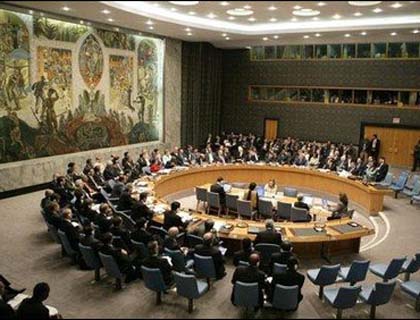The nascent democracy is unlikely to be a panacea for the Afghans’ bleeding wounds. There is a sense of mistrust in the air and our nation suffers from relentless violence and militancy. Ostensibly, the “war on terror” did not only fail to bring peace but paved the way for further hostility. The Taliban insurgents have been reorganized mysteriously and make heavy inroads into the country. After all, the emergence of the Islamic State (IS) group is a new challenge to be dealt with and it is not less threatening than the Taliban.
The gleam of hope regarding peace negotiation, between Afghan government and Taliban officials, disappeared following the news released the death of Taliban’s supreme leader Mullah Muhammad Omar. His successor Mullah Akhtar Mansour signaled his indication that peace was “the enemy propaganda” and carried out heavy attacks in Kabul within past few weeks which left hundreds of dead and wounded behind. Subsequently, Afghan officials blamed Pakistan’s security establishment and its top intelligence agency for the uptick in violence. Hence, the tension between Kabul and Islamabad on the one hand and the pugnacious attitude of Omar’s successor on the other hand stalled the peace negotiation.
Similarly, the appointment of Mansour as Omar’s successor led to a split within Taliban ranks. Omar’s family, including his brother Mullah Abdul Manan and his son Mullah Yaqub, refused to declare allegiance to Mansour. However, reports say that Omar’s family has pledged allegiance to Mansour, which has bridged the gap.
“In a meeting Mullah Yaqub (Mullah Omar’s son) and Mullah Abdul Mannan (Omar’s brother) pledged allegiance to the new leader of Islamic Emirate, Mullah Akhtar Mansour,” a statement issued by the Taliban said without saying when the meeting was held.
The statement, however, noted that Mullah Mansour was present on the occasion. The deal was brokered by a panel of clerics and elders, who had been trying for weeks to resolve the dispute that began with the appointment of Mullah Mansour as the group’s new chief. The question remains that will this agreement affect peace talk positively?
It is said that Pakistan and the United States have agreed to persuade Afghanistan to revive the stalled reconciliation process with Afghan Taliban in the latest push to restore peace in the war-ravaged country. The prospect of resumption of talks was reportedly discussed during a meeting between Pakistan army Chief General Raheel Sharif and the top US general in Rawalpindi last week.
The Express Tribune quoted a Pakistan’s official that the thrust of discussions between the US delegation and the army chief was on how to revive the stalled peace process. The security official is further cited that detractors and spoilers were undermining the process of rapprochement as well as efforts for striking a peace deal in Afghanistan.
Although, Pakistan nudges Taliban to sit on the table of negotiation with Afghan authorities, nonetheless, Syed Akbar Agha, a Taliban’s high ranking official, was not optimist about negotiation when he was asked in a video conference by a local reporter on Wednesday. He called the foreign forces “occupier” and claimed that the war was forced on the Taliban. He pointed out that Mullah Akhtar Mansour will not hold peace talk with Afghanistan until foreign soldiers fully withdraw.
I always deemed peace talk no more than a political game. The Taliban’s practices have constantly been at odds with their preaching. For instance, they continuation to target Afghan police and civilians during the negotiation. After all, it must be noted that the head of Afghan High Peace Council, Professor Burhanuddin Rabbani, was assassinated at his home in Kabul on September 20, 2011, by two men posing as Taliban representatives. The suicide bomber claimed to be a Taliban commander and said he wanted to “discuss peace” with Professor Rabbani. Four other members of HPC were also killed in the blast. The Quetta Shura, which is the leadership of the Afghan Taliban hiding in the Quetta City in Pakistan, was blamed for the incident by Afghan officials.
The Afghan High Peace Council was established in 2010 and tasked with contacting the Taliban and convincing them to join the peace process. The members of High Peace Council (HPC) were made tireless efforts in pursuit of brining Taliban’s leaders on the table of negotiation. But, all the attempts were proved abortive. In spite of the government’s efforts focused on re-integrating Taliban fighters, they did not have a reconciliation strategy.
Currently, the Taliban continue making heavy inroads into Afghanistan and neither years of investments on peace process nor the “war on terror” bore the desired fruit. Now, it is not only the Taliban but also the emergence of self-styled Islamic State group which have deteriorated the security situation across the country. “We are concerned about the situation in Afghanistan. International Security Assistance Force was in this country for a long time, and made some efforts, including the positive work, but in the end, it did not bring the final qualitative improvement of the situation,” Russian President Vladimir Putin is quoted as saying at the CSTO summit in Dushanbe last week. He believes that the situation in the country is degrading after the withdrawal of the main part of foreign troops and the territory of the Islamic State went far beyond Iraq and Syria. In a nutshell, the terrorist groups left no room for peace and democracy in the country.

